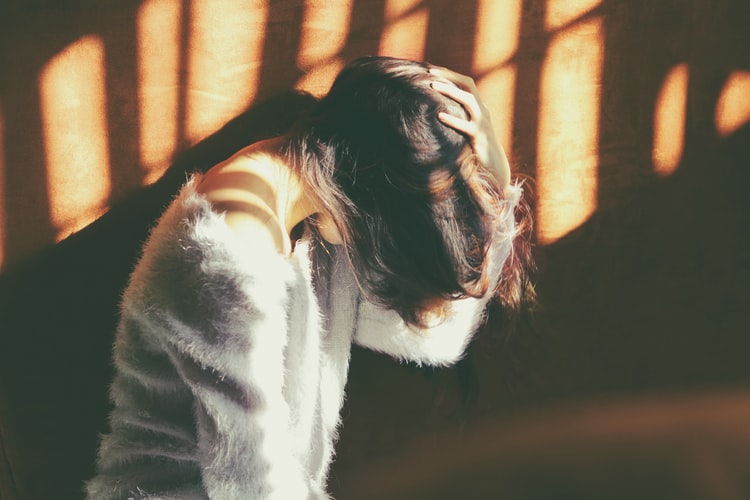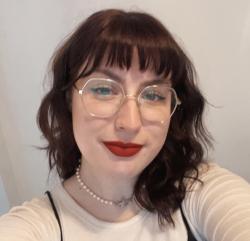
Music Editor Sammy Andrews discusses their experience with Coeliac Disease, explaining how it restricts day-to-day life in ways that people cannot see nor often understand
My experience with Coeliac Disease is something that I often struggle to speak about, but I always want to share in the hopes that it can help just one person feel less alone in the experience. Because, for me, it has been at times incredibly isolating. From restricted spontaneity surrounding social situations to a general lack of understanding of the condition, Coeliac Disease quietly restricts your day-to-day life in ways that people cannot see. My story and experience with the chronic illness is one that will never fully be complete – this is an illness that I will be grappling with for the rest of my life after all. But if my experience thus far can spread some awareness of what it means to live every day with Coeliac Disease and dispel the myth that we are simply ‘fussy eaters’ then I will always push myself to speak about it.
For context, Coeliac Disease is an auto-immune disease that impacts the small intestine. The immune system attacks its own tissues when gluten is eaten, resulting in damage to the small intestine meaning nutrients cannot be absorbed. That is in its simplest terms the medical definition of a much bigger lifelong illness. I was diagnosed when I was seventeen after almost two years of stomach aches, bloating, sickness, bowel issues, migraines, blurred vision and joint swelling and aches. This diagnosis was a result of an extensive process of being dismissed as ‘probably struggling with IBS’, countless blood tests and an intrusive endoscopy and biopsy procedure to declare the damage to my gut sufficient enough to warrant an official Coeliac diagnosis. Perhaps the most distressing part being is that I had to keep gluten in my diet during this entire process, despite the physical and emotional damage it was having on me.
There is no cure for Coeliac Disease, only management through a strict gluten-free diet. Although that diet has massively improved my symptoms, I still struggle day to day with the exhaustion and bloating; having to rearrange plans and re-consider outfits to ensure I am comfortable. I cannot speak for the vast combination of symptoms and complications that Coeliac Disease causes in a lot of people, but I can share my own.
I cannot speak for the vast combination of symptoms and complications that Coeliac Disease causes in a lot of people, but I can share my own
I think what a lot of people do not understand is that it is not just a case of not eating bread. I have to eliminate any chance of cross-contamination with gluten as even a single crumb would do damage – I would be left in agony for days if I was to accidentally eat any. This brought an entirely new level of anxiety surrounding eating out for me. I already felt strange enough asking for a specific menu, never mind the various restaurants that claim they cannot offer gluten-free options as it would not be ‘authentic’ to the cuisine. I felt alienated and as if I could not trust anyone, and very quickly just wanted to isolate myself. This took me a while to find my feet with and is something that still brings a lot of anxiety surrounding plans – anyone who knows me well will know that I always keep a stash of snacks at the bottom of my bag just in case I cannot eat somewhere. Coeliac UK’s accredited venues were, and still are, a lifesaver.
I felt alienated and as if I could not trust anyone, and very quickly just wanted to isolate myself
I also must go for pneumonia vaccines, annual flu vaccines, and annual blood tests. This year’s blood test revealed that my cholesterol is high due to my intestine slowly healing, but my iron and folate was low. I have been prescribed folic acid, iron supplements and vitamin D supplements alongside being advised on ways to enrich these foods in my diet. My folate deficiency has found its way into dizziness, brain fog, extreme fatigue, and joint aches that often at times leave me unable to do a lot most days. This is more for me than just eating gluten-free, and I think that is what I wish people knew.
I have faced all sorts of misconceptions about my illness. The most popular is always that I am just being a picky eater, or that the gluten-free diet is something I have picked as a kind of fad diet. Oftentimes people will tell me that I look completely fine so I cannot be ill. This was said a lot by peers at University who did not really know me but could not understand why I had a reasonable adjustment plan from the Disability team. Yet every single day, I deal with some kind of a physical or mental strain and exhaustion brought on by an illness that I will live with forever.
Every single day, I deal with some kind of a physical or mental strain and exhaustion brought on by an illness that I will live with forever
My entire relationship surrounding food has changed, but almost three years in it is beginning to grow into something I love again – having more control over what I eat has brought a new love for cooking that I did not know I had. I founded and then went on to be president of Gluten Free Society when I started University, where I felt a real sense of community for the first time. I was no longer the only person dealing with these issues and had people to share them with. I am fortunate enough to have extremely supportive family, friends and loved ones that understand my needs and are willing to make plans that accommodate my requirements. It very quickly does just become a normal way of life, but this has only happened through a strong support system, the time it has taken me (and is still taking me) to come to terms with my illness, and a wider awareness of just what it means to live with Coeliac Disease.
Read More From Comment:
Should We Praise Molly Mae Hague For Her New Position As Creative Director of Pretty Little Thing?

Comments